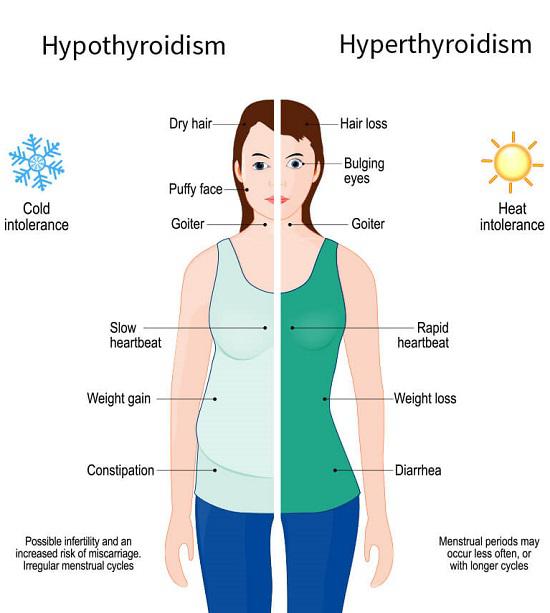Thyroid Health What is Considered a Dangerously High TSH Level?
Welcome to a comprehensive exploration of TSH levels and their critical role in thyroid health. In this guide, we will delve into what TSH is, how it’s measured, and most importantly, what constitutes a dangerously high TSH level. Whether you’re navigating thyroid issues or simply seeking knowledge, this article will provide valuable insights into maintaining optimal thyroid health.
What is TSH and How is it Measured?
Before we dive into high TSH levels, let’s demystify what TSH stands for and how it’s assessed. TSH, or Thyroid-Stimulating Hormone, is a critical regulator of your thyroid function. It’s measured through a simple blood test, providing valuable insights into the health of your thyroid gland. Understanding the basics of TSH measurement is the first step in comprehending the significance of TSH levels.

Normal TSH Range
When discussing TSH levels, it’s crucial to establish what’s considered normal. In the realm of thyroid health, a “normal” TSH range provides a benchmark for assessing thyroid function. We’ll delve into the typical range of TSH levels that medical professionals consider healthy. This knowledge serves as a foundation for identifying when TSH levels become dangerously high.
Factors Influencing TSH Levels
Understanding TSH levels requires recognizing that they can fluctuate due to various factors. It’s not just about the numbers on the test results. In this section, we’ll explore the factors that can influence TSH levels, including age, gender, medications, and underlying medical conditions. By acknowledging these variables, you’ll gain a more comprehensive understanding of TSH levels and their significance.
Symptoms of High TSH Levels
High TSH levels can manifest in various ways, often with noticeable symptoms. It’s crucial to recognize these signs, as they can indicate thyroid dysfunction. We’ll provide an in-depth list and explanation of common symptoms associated with elevated TSH levels. Whether it’s unexplained weight gain, fatigue, or mood changes, being aware of these signs is essential for early detection and management.
Health Risks of Dangerously High TSH Levels
High TSH levels aren’t just numbers; they carry significant health implications. In this section, we’ll delve into the potential health risks and complications associated with dangerously high TSH levels. From thyroid disorders to cardiovascular concerns, understanding these risks emphasizes the importance of monitoring and managing TSH levels effectively.
Diagnosing and Treating High TSH Levels
For individuals with elevated TSH levels, proper diagnosis and management are essential. In this section, we’ll guide you through the diagnostic process, including blood tests and thyroid function assessments. Additionally, we’ll explore available treatment options and strategies for managing thyroid dysfunction effectively. Understanding the steps to take when faced with high TSH levels empowers individuals to take control of their thyroid health.
Lifestyle Changes and Management
Beyond medical treatments, lifestyle plays a crucial role in managing high TSH levels. In this section, we’ll discuss practical lifestyle modifications, including dietary choices and exercise routines, that can positively impact thyroid health. By making informed decisions and incorporating these changes into your daily life, you can contribute to better TSH-level management.
Frequently Asked Questions (FAQs)
Q1. What is TSH, and why is it important?
A1. TSH stands for Thyroid-Stimulating Hormone, a crucial hormone that regulates thyroid function. It’s important because it signals the thyroid gland to produce thyroid hormones, which control various bodily functions.
Q2. What TSH level is considered dangerously high?
A2. A TSH level above 4.0 mIU/L is typically considered high, but “dangerously high” may vary depending on individual health and factors. Consult a healthcare professional for personalized guidance.
Q3. What are the common symptoms of dangerously high TSH levels?
A3. Symptoms may include unexplained weight gain, fatigue, constipation, dry skin, and depression. However, symptoms can vary among individuals.
Q4. What causes dangerously high TSH levels?
A4. Various factors can contribute, including thyroid disorders like hypothyroidism or thyroiditis, certain medications, and pituitary gland issues.
Q5. Can dangerously high TSH levels lead to thyroid problems?
A5. Yes, high TSH levels often indicate an underactive thyroid (hypothyroidism), which can result in thyroid-related issues if left untreated.
Q6. How is high TSH diagnosed?
A6. A blood test measuring TSH levels is used for diagnosis. If TSH is elevated, further tests may be conducted to determine the cause.
Q7. What treatments are available for high TSH levels?
A7. Treatment depends on the underlying cause. It may involve medication, lifestyle changes, or addressing specific health conditions contributing to high TSH levels.
Q8. Can diet and exercise help manage high TSH levels?
A8. Diet and exercise can support overall thyroid health, but they may not directly lower TSH levels. Consult a healthcare professional for tailored advice.
Q9. Are high TSH levels dangerous during pregnancy?
A9. High TSH levels can be concerning during pregnancy, as they may affect fetal development. Pregnant individuals should receive prompt medical attention and treatment if necessary.
Q10. How often should I monitor my TSH levels if they are high?
A10. Monitoring frequency should be determined by your healthcare provider based on your specific condition and treatment plan. Regular follow-up is essential to ensure TSH levels are within a healthy range.
Conclusion:
As we conclude our journey through TSH levels and thyroid health, it’s evident that knowledge is a powerful tool. We’ve explored the fundamentals of TSH, recognized the signs of high levels, and understood the associated health risks. Moreover, we’ve discussed diagnosis, treatment, and the role of lifestyle in managing high TSH levels. By taking control of your thyroid health through awareness and proactive steps, you can navigate the complexities of TSH levels with confidence. Remember that early detection and management are key to maintaining optimal thyroid function.




